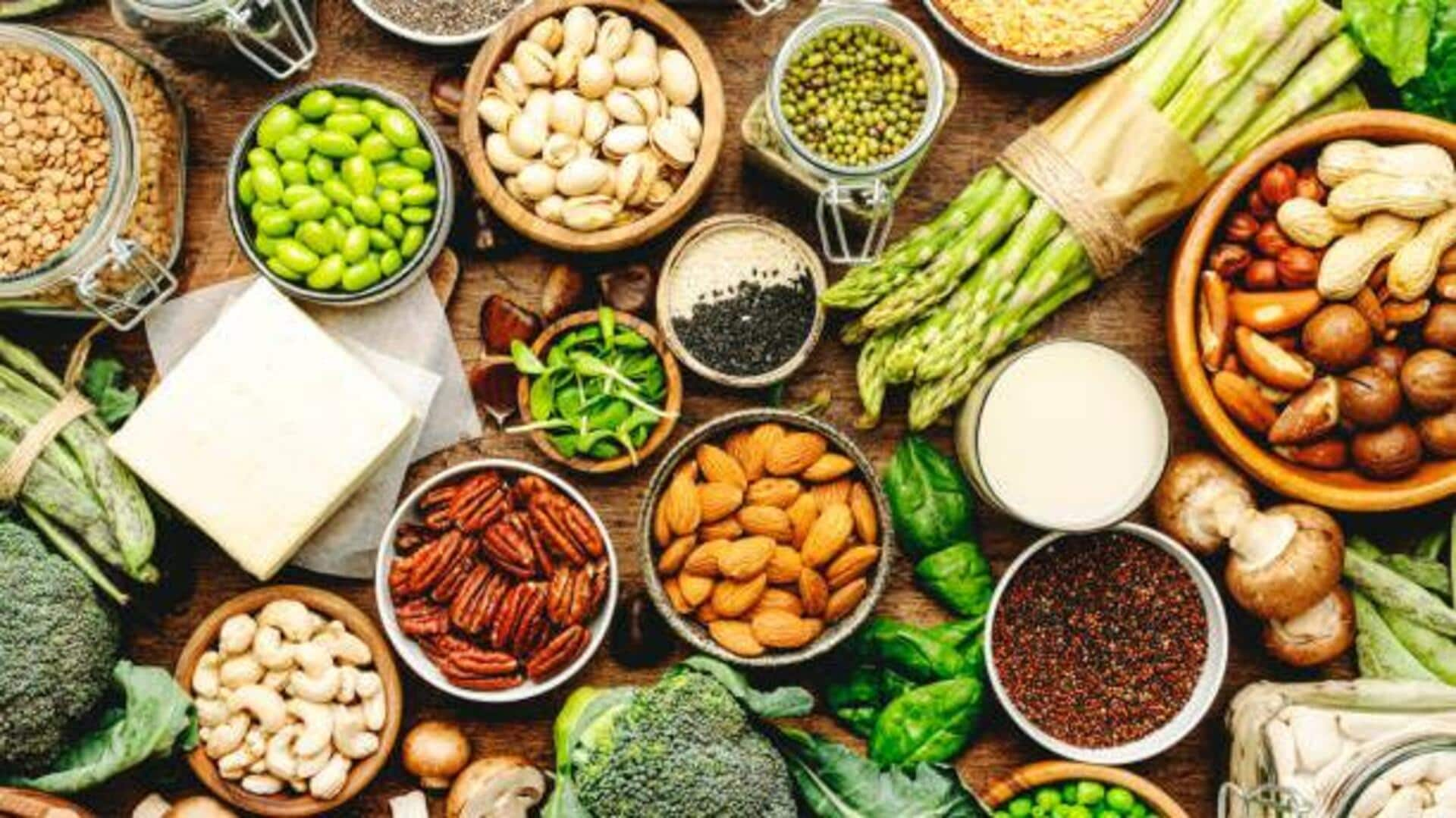
Vegan proteins: Myths v/s facts
What's the story
Vegan diets are often misconstrued, especially with respect to protein intake. Many assume that plant-based eaters have a hard time getting enough protein, but that's not the case. Knowing the facts about vegan protein can help bust these myths and bring clarity to the table for those considering or already on a plant-based lifestyle. This article busts common misconceptions and explains how vegans can meet their protein needs well.
Protein sources
Myth: Vegans can't get enough protein
A common myth is that vegans cannot consume sufficient protein without animal products. However, there are numerous plant-based sources rich in protein such as lentils, chickpeas, quinoa, and tofu. These foods offer essential amino acids necessary for health. By incorporating a variety of these sources into meals, vegans can easily meet their daily protein requirements.
Amino acids
Myth: Plant proteins are incomplete
Another misconception is that plant proteins lack all essential amino acids needed by the body. While some individual plant foods may not contain all nine essential amino acids, eating a diverse range of plants throughout the day ensures complete amino acid profiles. For instance, pairing rice with beans creates a complete protein source.
Muscle growth
Myth: Vegan diets lack muscle-building potential
Some people think that building muscle on a vegan diet is difficult, thanks to insufficient protein. In reality, a lot of athletes flourish on plant-based diets by focusing on high-protein plants like legumes, and nuts, while maintaining balanced nutrition overall. Consistent strength training paired with an adequate calorie intake yields muscle growth effectively.
Natural intake
Myth: Supplements are necessary for vegans
There's a common misconception that vegans have to depend largely on supplements to meet adequate nutrition levels, including proteins. However, this isn't always the case if one follows a well-planned diet abundant in whole foods such as grains and seeds. These naturally provide adequate nutrients along with proteins without supplementation being necessary unless suggested by healthcare professionals according to individual needs or deficiencies revealed through medical tests.